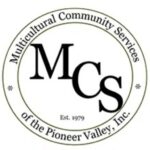
MassHealth regulation is specific when addressing member eligibility. MCS Adult Foster Care has incorporated these regulations into its policy.
AFC Members will live in a qualified setting with trained, paid independent contractors/ Caregivers. Caregivers will receive a tax-free stipend to provide daily support with personal care needs in a family setting rather than a nursing home or other residential facility. Caregivers provide meals, companionship, personal care assistance and 24-hour supervision. Caregivers may be individuals, couples or families.
Caregivers submit invoices bi-monthly for care payment.
AFC payments rates are determined by MassHealth 101 CMR 351.00: ADULT FOSTER
Caregivers are entitled to a Room & Board payment which is equal to 75% of the Members’ social security benefits and will be delivered by the 10th of each month from the Members’ representative payee.
For non-family placements and when personally requested, a room and board agreement is developed to ensure financial aid is provided as needed.
Performance Evaluation Policy for Caregivers:
MassHealth regulation is specific when addressing quality improvement.If you are interested in becoming a caregiver for Adult Foster Care please click here to access the online application
MassHealth Payments
Level 1 Service Payment. The MassHealth agency will pay the level I service payment rate if a member requires hands-on (physical) assistance with one or two of the ADL’s listed below or requires cueing and supervision throughout the task in order for the member to complete the activity.
Level II Service Payment. The MassHealth agency will pay the level II service payment rate for members who require hands-on (physical) assistance with at least three of the ADL’s described below or hands-on (physical) assistance with at least two of the activities and management of behaviors that require frequent caregiver intervention.
Masshealth requires that the member has a medical or mental condition that requires daily hands-on (physical) assistance or cueing and supervision throughout the entire activity in order for the member to successfully complete at least one of the following activities: